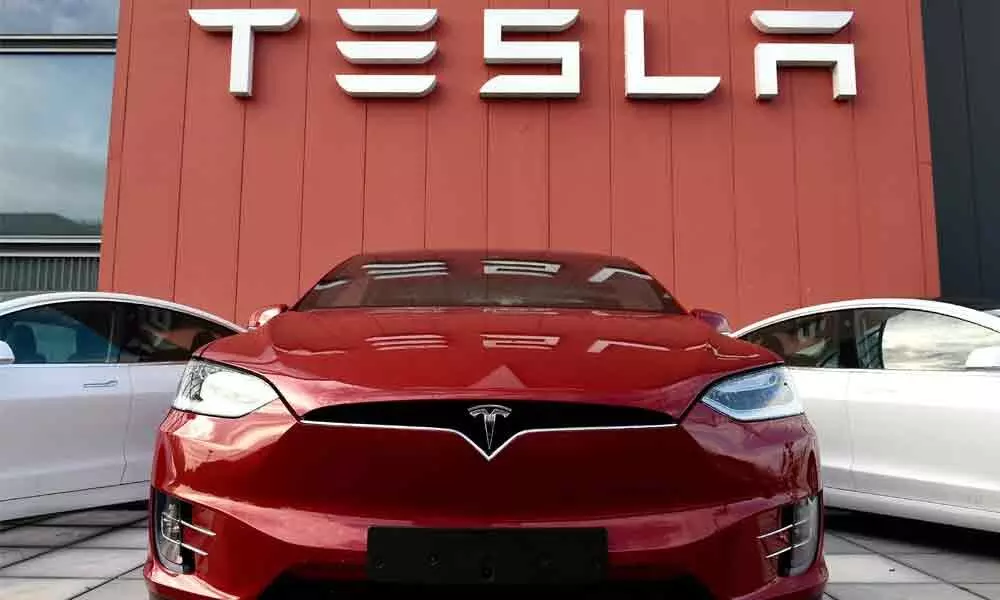Tesla's entry set to rev up EV sales
US electric carmaker’s India plan, however, is far from easy due to infrastructure, supply chain constraints
image for illustrative purpose

Despite the high potential, India is yet to have a vibrant EV market. Last year, the country witnessed sales of only 5,000 electric vehicles out of the total 2.4 million cars sold
Bengaluru: The entry of the US electric carmaker, Tesla Inc, into India has brought good news for the Indian electric vehicle (EV) ecosystem, and experts opine that it will give a boost to the EV sales in the country.
However, the road for Tesla will not be easy due to the lack of supportive infrastructures such as charging stations, high import duty, and poor research and development (R&D), they said.
"The entry of Tesla is significant in various ways for the Indian EV ecosystem. Firstly, it will attract higher sales of EVs in the country in the luxury car segment. Secondly, it will boost local manufacturing of EV components as Tesla normally enters a market with manufacturing in mind," said Pareekh Jain, an IT expert in the engineering services segment and Founder of Pareekh Consulting.
After a long wait, Tesla entered the Indian market with its unit being registered as Tesla India Motors and Energy Private Limited in Bengaluru on January 8, 2020. Vaibhav Taneja, Venkatrangam Sreeram and David Jon Feinstein have been named as Directors, Corporate Affairs Ministry disclosure showed. The EV company will also set up an R&D centre in Bengaluru.
Despite the high potential, India is yet to have a vibrant EV market. Last year, the country witnessed sales of only 5,000 electric vehicles out of the total 2.4 million cars sold. The reason for it is lack of local production of components and batteries, absence of charging infrastructure and high cost of EVs.
However, there are a number of startups that are working in the EV ecosystem to boost sales of electric vehicles. Okinawa, Ratan Tata-backed Tork Motors, Revolt Intellicorp, ION Energy and Tiger Global-backed Ather Energy are some of the startups that are part of the Indian EV startup ecosystem.
Established carmakers such as Tata Motors and Mahindra are also investing heavily in EVs and have come up with a number of models to push sales. Tata Group is also investing in setting up a lithium-ion battery manufacturing unit to cash in on the growing demand for the component.
Tesla's entry will further strengthen the EV component ecosystem apart from the R&D work. "Tesla plans to set up an engineering services research centre in Bengaluru. This will enrich engineering services in the country, given the fact that all other major automotive companies have their R&D units in India," Jain said. Tesla Chairman Elon Musk has publicly stated that the company plans to manufacture 20 million EVs per year. To manufacture such volume, the company needs to crack the China and India markets, experts opined.
"Tesla has already entered the Chinese market with a manufacturing facility. It's time now to tap India, which is a big market for all automotive players. However, the company has to come up with models that are affordable to Indian customers," an industry expert said.

